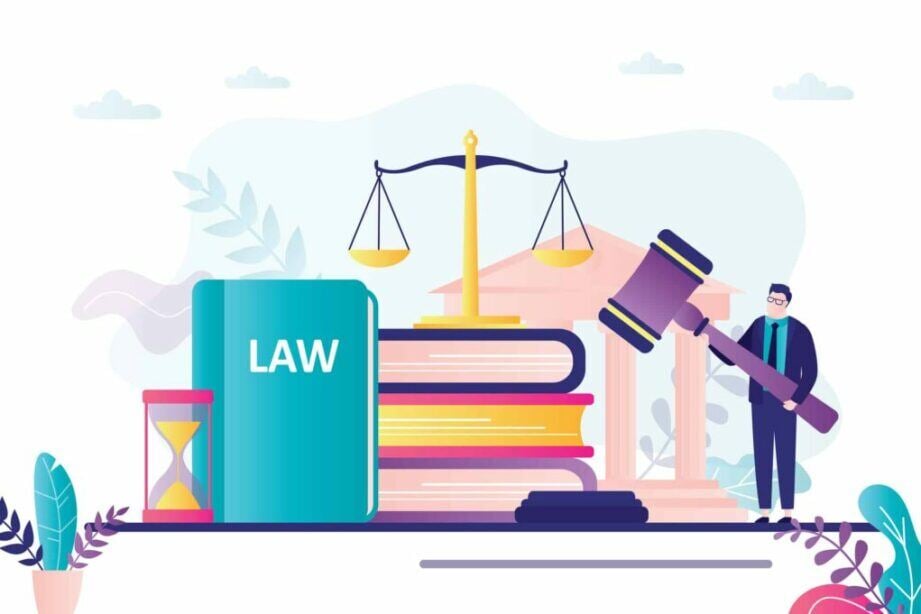Explore our comprehensive guide on language access laws in the US. Understand who they apply to and the penalties for noncompliance, and check out available resources to help you create a Language Access Plan.
According to census data, more than 350 languages are spoken in the United States and 1 in 5 families speaks a language other than English at home. In such a multilingual, multicultural environment, it is vital to ensure that all individuals have equal access to public services, programs, and information, regardless of their primary language.
This is where Language Access laws come in. Language access laws mandate how and when language services like interpretation and translation must be provided to individuals with limited English proficiency (LEP) and Deaf and Hard of Hearing individuals who interact with government agencies or with organizations that receive public funding.
In this article:
In this guide, we take a comprehensive look at Federal language access laws: what they are and what they say, who they apply to, and how organizations are expected to comply with them. We also explore some of the potential consequences for non-compliance, as well as resources available to help organizations understand and comply with legal obligations.
What are Language Access laws?
Since 1964, language access has been considered an important part of the civil rights protections afforded by the U.S. Constitution, as they protect against discrimination on the basis of national origin and language.
In the decades since, language access requirements have been continuously fortified through subsequent laws, Executive Orders, and Federal guidelines.
Title VI of the Civil Rights Act of 1964
Alongside other hard-won civil rights legislation of the 1960s, Title VI of the Civil Rights Act of 1964 prohibited the discrimination of any individual on the basis of national origin.
While the inclusion of language in the interpretation of national origin remained a topic of debate for some years, it was confirmed in subsequent case law, including Lau v. Nichols (1976), a landmark Supreme Court case which held that recipients of Federal financial assistance must provide individuals with LEP the means to meaningfully participate in public programs.
Under Title VI, any organization, program, or activity receiving Federal financial assistance is required to take meaningful steps toward providing language access, which includes a mixture of two essential language services: oral interpretation and written translation.
According to the Department of Justice, depending on the circumstances:
Oral interpretation may range from on-site interpreters for critical services provided to a high volume of LEP persons to access through commercially-available telephonic interpretation services. Written translation, likewise, can range from translation of an entire document to translation of a short description of the document.
Executive Order 13166
In 2000, language access requirements were taken to the next level with President Clinton's Executive Order 13166, which requires all Federal agencies to provide meaningful access to their programs and activities for individuals with LEP.

EO 13166 also requires that public entities receiving Federal financial assistance (including state, local, and tribal governments) implement and maintain language access plans as needed, post notices of the availability of language services in prominent public locations, and take steps to ensure that all those providing services are properly trained.
EO 13166 also reinforced previous requirements of Title VI for organizations and agencies receiving Federal funds to provide written translation or oral interpretation, as well as other language services as needed, to individuals with LEP.
The Affordable Care Act (ACA)
The Affordable Care Act (ACA) also includes language access provisions to ensure that individuals with LEP have equal access to healthcare. Section 1557 of the ACA prohibits all types of healthcare entities and programs, including insurers, providers, and those receiving public funds, from denying access to services on the basis of race, color, sex, age, disability, or national origin – which includes language.
According to the US Department of Health and Human Services (HHS) , language access requirements under the ACA include providing written translations and oral interpretation services in a timely manner, providing interpreters with appropriate professional qualifications, making available readily understandable information in multiple languages, and offering a developmentally appropriate language assistance program for children.
In the aftermath of COVID, HHS is redoubling efforts to ameliorate racial and ethnic disparities in access to healthcare, including language discordance. In April 2022, HHS released its Equity Action Plan, which specifies the Department’s commitments to upholding language access obligations. This entails improving the accessibility of information, services, and benefits from Medicare, Medicaid as well as other Federal programs for individuals with LEP through such means as in-language web pages, public outreach materials, interpreter services, and other improvements.
Additional concrete steps were announced in an October 2022 communication from HHS that relaunched its Language Access Steering Committee to “support HHS’s implementation of language access obligations,” and announced $4MM in grant funding for a new language access initiative.
The American with Disabilities Act (ADA)
Another vital piece of legislation that supports equal access to public programs and services and safeguards against discrimination is the American with Disabilities Act (ADA). The ADA extends protections to individuals with disabilities, including communication disabilities, which may encompass vision, hearing, or speech disabilities.
The ADA requires that recipients of Federal assistance, State and local governments, and any business or nonprofit organization that serves the public make "reasonable modifications" to communicate effectively with individuals with communication disabilities. One of the main accommodations required is the provision of auxiliary aids and services, which includes interpreters and other language access services for the Deaf and Hard of Hearing.
The ADA also requires that public entities post notices in prominent locations announcing the availability of language access services, which must include information about how to contact an appropriate interpreter service provider.
Who Do Language Access Laws Apply to?
Language access laws are intended to be comprehensive. Under these laws, all public entities, as well as any organization receiving Federal financial assistance of any amount, are required to provide meaningful language access services.
This includes, among others:
- State and local governments and tribal authorities
- Law enforcement agencies
- School districts
- Hospitals, health care providers, and health facilities (including those that receive any amount of reimbursement through Medicaid/Medicare)
- Federally-funded programs providing social services or public benefits (such as SNAP, WIC, and TANF)
- Financial institutions (including banks, credit unions, and mortgage lenders)
- Any business or nonprofit providing public services
- Contractors or subcontractors of any of the above entities
- Vendors supplying goods to any of the above entities
- Any other organizations that receive Federal funds

What are the Penalties for Non-Compliance with Language Access Laws?
While each law has its own specific history of interpretation and penalization for non-compliance, there are similarities.
Violations of Title VI and the ACA may result in full termination of Federal funding as well as other sanctions, while violations of Executive Order 13166 and the ADA may subject the offending organization to civil penalties. Violation of any of the four may result in hefty six- to seven-figure fines.
Importantly, in addition to the ability to sue on the grounds of discrimination, individuals with LEP and the Deaf and Hard of Hearing have the right to file a complaint for discrimination with the appropriate oversight agency, which may be the Department of Justice, Department of Labor, or the Office of Civil Rights within the Department of Health and Human Services, depending on the circumstance. Complaints can prompt disruptive and costly investigation into and legal action against the accused entity. Moreover, all four laws also provide for legal remedies, including compensatory damages, statutory damages, and/or attorneys’ fees.
Conclusion
In a multilingual, multicultural society like the United States, language access laws help ensure that all individuals have equal access to public programs and services, regardless of the language they speak. This is especially important in healthcare settings where language barriers are a preventable obstacle to health equity.
Failure to comply with language access requirements may subject an offending organization to the imposition of hefty fines or termination of Federal funds, as well as referral to the Department of Justice for appropriate legal action. Non-compliance may also lead to costly litigation that can damage an organization's reputation and negatively affect its relationship with the community.
To avoid these costly and damaging consequences, it is essential for organizations and agencies receiving Federal funds to understand and comply with their obligations to provide language access services, such as interpretation and translation, to individuals with LEP and the Deaf and Hard of Hearing as required by the cornerstone legislation outlined in this guide.
Fortunately, there are numerous resources available to help organizations, government agencies, and individuals understand Federal language access laws. These include websites and publications created by Federal agencies including the Department of Justice, the Department of Health and Human Services, the Centers for Medicare and Medicaid, the Equal Employment Opportunity Commission, as well as advocacy and civil rights organizations such as the Migration Policy Institute, the National Association of the Deaf, and others.
Additional Helpful Resources for Language Access
- Language Access Plan Checklist | Jeenie
- Guide to Developing a Language Access Plan | Centers for Medicare & Medicaid Services
- A Practical Guide to Implementing the National CLAS Standards | Centers for Medicare & Medicaid Services
- lep.gov | Official Language Access Resource of the U.S. Department of Justice
- LEP Resources | Office of Civil Rights of the U.S. Department of Health and Human Services
- Language Access Assessment and Planning Tool | U.S. Department of Justice









